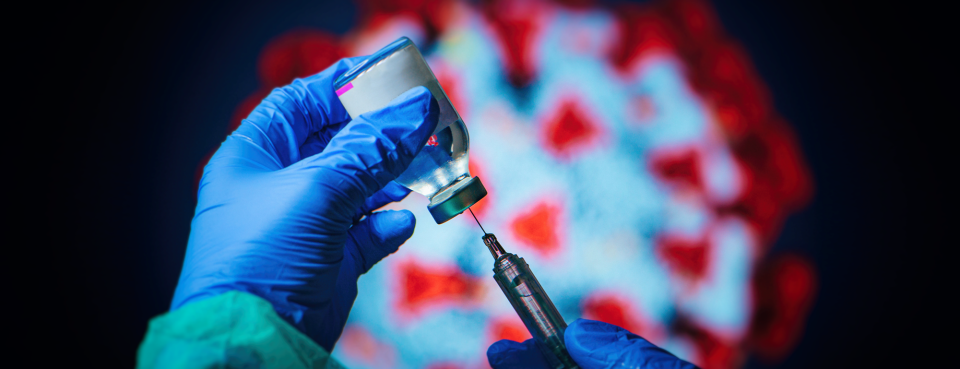Remain ... Vigilant
"Our findings suggest that immune imprinting by prior antigenic exposure may pose a greater challenge [than currently appreciated]."Bivalent Vaccine efficacy study"No one is saying don't get boosted. The concern that I have is if you talk up these bivalent boosters as being some kind of super strong shield ... that encourages people to believe they've got amazingly strong protection against infection...""My message for the general public is: Don't drop your guard just because you've been boosted."John F. Moore, professor of microbiology and immunology, Weill Cornell Medicine, New York
 |
| Getty Images |
It would seem that despite being lauded for super efficacy by its manufacturers, the new bivalent COVID-19 vaccine boosters may not deliver the ant5icipated level of protection against Omicron mutations after all. On the other hand, in the glass-half-full category, the bivalent shots, offering similar protection to the original vaccine formulas previously rolled out in the early stages of the pandemic, do offer at the very least the same protection level against serious outcomes once infected; fewer hospitalizations, less health impact and fewer deaths.
Two new studies, both small involving a total of 73 individuals between them, have the status of pre-prints, not yet accepted for publication in any respected medical journal following assessment by peer scientists for accuracy. The authors of the studies consider a phenomenon called "immunological imprinting" as a possible impediment to full Omicron subvariant efficacy; the immune system has a habit of locking onto and responding to the initial version of the virus either through vaccination or infection.
Columbia University and University of Michigan researchers responsible for the first study, compared Pfizer and Moderna's bivalent boosters targeting both the original SARS-CoV-2 strain along with Omicron's BA.4/BA.5 strains against the original vaccine formulations. Three to five weeks following booster shots no "discernibly superior" difference was found between the level of virus neutralizing antibodies in the blood of people receiving the revamped vaccine as a fourth shot in comparison to those who received the original vaccine formations.
"To disappointment, the bivalent vaccine did not show superiority over the original vaccine", observed co-author David D. Ho, professor of microbiology and immunology at Columbia. A Beth Israel Deaconess Medical Center in Boston team arrived at similar findings when they studied the responses of 15 people who received the original mRNA boosters and 18 others who received the bivalent boosters.
Some of those studied had two to four prior COVID-19 vaccine doses while a third of participants experienced a confirmed COVID-19 infection during the Omicron surge. Both boosters were seen to increase antibody responses; however, a "modest and non-significant trend" favoured the bivalent shot. Pfizer, on the other hand, issued a press release with their data finding that individuals who received its bivalent shot showed a "substantial increase" in neutralizing antibodies against Omicron BA.4 and BA.5 in the first seven days after receiving a booster dose.
The Moderna vaccine approved in Canada is different than the one tested in the two new studies. The version approved in Canada was designed to target Omicron BA.1, since eclipsed by BA.4 and BA.5. Moderna researchers reported, in a study published in the New England Journal of Medicine that a fourth dose of their BA.1-targeting booster elicited a "superior antibody response" against Omicron in comparison to a booster dose of its older vaccine, including against the BA.4 and 5 subvariants,.
The role of the neutralizing antibodies in assessment is to infer how well vaccines work. Little available public data is thus far available on how efficacious the revamped boosters are at preventing severe illness and hospitalization, even while immunologists anticipate they will be of help in thwarting severe outcomes.
"For those who are saying, 'See, see, I told you so', I would say, let's stand down a little bit and wait for some cleaner data to come out, because these studies can't be used to support really one argument or another", cautioned Dr. DeeptaBhattachary7a, professor of immunology at University of Arizona.
 |
| Getty Images |
"[Millions of people have already had three, even four shots of the original vaccine] so there's a potential for imprinting, a preferential revving up of the immune response to whatever the person was originally exposed to.""Bottom line. Until more data are available, regard the bivalent booster as equivalent to a booster which augments and broadens immunity, without specific anti-BA.5 properties."Dr. Eric Topol, professor of medicine, Scripps Research
Labels: Bivalent Vaccines, Immune Imprinting, Omicron Suibvariants, Research

0 Comments:
Post a Comment
<< Home